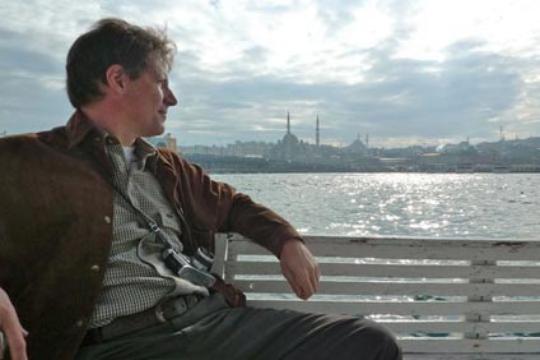
Turkish Zaman touched upon possible developments around the Kurdish issue. Find the full text below.
Amid the many challenges thrown up for Turkey by the worsening civil war in Syria is the way it adds fuel to the flames of Ankara’s domestic conflict with insurgents of the Kurdistan Workers’ Party (PKK). Clashes have worsened dramatically in Turkey’s southeast over the past year. A PKK-affiliated group is now dominant in Kurdish areas along northern Syria’s Turkish borders. And Turkey is accusing Syria of resuming its previous support for the banned group, listed as a terrorist organization.
But it is important for Turkey to face the fact that the Syrian connection is merely a symptom of its most important internal problem. A US Patriot missile shield along the Turkey-Syria border, as suggested by the Turkish government this week, is not going to be much help against the PKK. The real test for Turkish Prime Minister Recep Tayyip Erdoğan is to find a way to use the current turmoil to perform a U-turn to escape from the failed PKK/Kurdish policies of his government in the past 18 months.
A change of course is increasingly urgent. Casualty rates in the insurgency have deteriorated to the worst seen since the bad old days of the 1990s, with the International Crisis Group’s informal minimum tally counting more than 830 soldiers, police, PKK and civilians killed in violence since June 2011. In September this year, pro-PKK detainees and prisoners began a hunger strike that has now spread to more than 600 people in more than 60 jails, some of whose condition is turning critical. Police have detained several thousand Kurdish movement activists on terrorism charges, mostly with no link to violence. A shutdown last week of shops, schools and municipal services in sympathy with the detainees and hunger strikers in the main Kurdish-speaking city of Diyarbakir was one of the most widely observed in the past decade.
Erdoğan’s response so far has been a new round of inflexible rhetoric, a military-only strategy on the ground, and a public denial that anyone was on hunger strike at all. This is no longer realistic. He must find a way back to the fruitful policy he adopted up until 2009, a “Democratic Opening” that did more for the long-oppressed Kurds than anything else in nearly a century, and a real attempt to talk with and engage the PKK in a settlement. The casualty rate plunged during those times, and in June last year the legacy of that policy still helped his ruling Justice and Development Party (AKP) to win more than one third of the vote in 12 southeastern majority Kurdish-speaking provinces.
Splitting struggle against PKK from Kurdish problem
To solve the conflict, the Turkish prime minister will need a clear new package of measures. He should start by splitting his military struggle against the recent PKK armed offensive from the underlying Kurdish problem. The Kurdish issue, in turn, should be tackled by policies that include: the right to education in mother languages, decentralization, an election system that allows the Kurdish movement party to win a proper place in parliament, and a stripping away of any discrimination in the constitution and laws. The much-used excuse for not doing this — the supposed Turkish nationalist rejection of equal rights and justice for Kurds — is a mirage.
Mainstream Turkish opinion never voiced great opposition to the Democratic Opening, the talks with the PKK or 24-hour Kurdish television — all unthinkable five years ago.
Indeed, Erdoğan’s government already appears to be backing towards such sensible policies. Optional Kurdish lessons started in schools in September. Deputy Prime Minister Bulent Arinc has promised that Kurds will be allowed to use their own language in court, and that jailed PKK leader Abdullah Öcalan would have the right to access his lawyers (and thus the outside world) restored after more than a year of isolation. The AKP tabled new proposals this week for a new constitution, which now apparently includes a lowering or doing away with the problematic 10 percent threshold of the national vote to get into Parliament (which usually excludes only the main Kurdish movement party, which typically polls 5 percent to 7 percent). Finally, the constitutional reform committee in Parliament is still in session, and could do much to remove any lingering ethnic discrimination.
But for all this to work, Prime Minister Erdoğan needs to summon up real political will, and present this patchwork of positive ideas as a unified, comprehensive strategy to resolve a conflict that has cost more than 30,000 lives and $300 billion since 1984. Just doing what is right on the question of Öcalan’s access to lawyers and the use of Kurdish in court and education would also end the hunger strikes. Happily, a long window of election-free political opportunity to put such a strategy to work reappeared this week, as the AKP abandoned plans to bring forward local polls from March 2014.
No doubt, events in Syria have made Turkey nervous about the empowerment of Kurds in the Middle East, and the Damascus government may well have returned to its past policies of trying to undermine Turkey by making its parallel PKK insurgency and Kurdish problem more difficult to solve. But the lesson of the last 18 months is that Turkey has almost no tools — threats, soft power or military might — that can make a critical difference to the deterioration of the Syrian civil war.
If Turkey feels vulnerable on the Kurdish question, Prime Minister Erdoğan’s best defense is to set his own country’s house in better order.




































